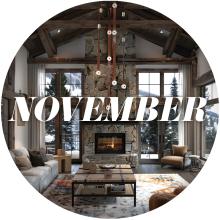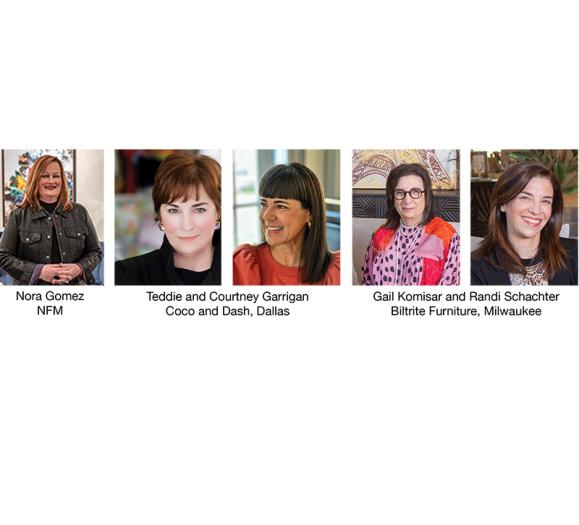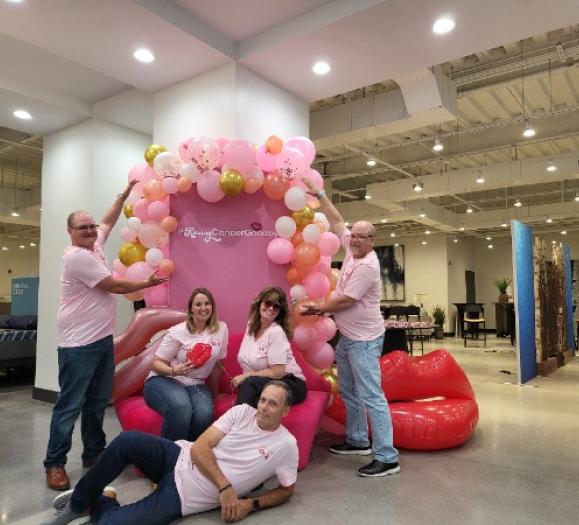You’re a brick-and-mortar home furnishings or lighting retailer. Your primary customer base is relatively local. Some of the most effective ways to market to your customers and potential customers might surprise you. There are newsletters, social media and local advertisements, of course, but are those the most effective ways to reach a qualified customer base, especially when big-ticket purchases are not something consumers make every day?
According to retail strategist James Fleming, CEO of Camelot Group, connecting with local service people (plumbers, electricians, builders, etc.) and real estate agents has the potential to boost your purchase-ready customer more than other marketing strategies. Referrals from these connections can be worth their weight in, well, sales.
Leverage the ‘Buy Cycle’
“People don’t buy sofas, dining room sets or hard goods but a few times in their lives, so they’re rarely in the buy cycle,” Fleming says. “You can run all the ads you want. If your customer isn’t in the market for a new chandelier, they aren’t buying a new chandelier. The greatest window of purchase is when someone is buying a
new home.”
That’s where connecting with local real estate agents becomes an essential part of your retail marketing strategy. Who knows better who is moving and could be a potential home furnishings customer? “Real estate agents are a huge untapped referral source for retailers and interior designers,” Fleming says. “They talk to people every day who are going to be in the buy cycle in the next month.”
Fleming suggests creating a “gift” mailing that real estate agents can pass on to new homebuyers. One approach is to create a mailer that replicates a $100 bill for real estate agents to give their clients who’ve just purchased a new home. The mailer can offer up to $100 off a purchase of $250 or more at your store, for example. “This drives qualified candidates to the store where they typically spend more than $250,” he notes. “This works better than more traditional advertising campaigns, and it’s measurable. Real estate agents want to ingratiate themselves with their clients and will often send a gift to congratulate someone on their new home. This approach doesn’t cost them money, and it helps their buyers.”
To get in front of real estate agents, survey the local Realtors with houses on the market. They’ll often have sales meetings on a daily or weekly basis. Offer to sponsor one of those sales meetings by bringing breakfast or lunch in return for a few minutes to speak at the meeting, where you can share referral opportunities that benefit you both.
“However, you can’t just have that one breakfast session,” Fleming warns. “You need to collect business cards from those Realtors and follow up with mailings on a regular basis. And you need to recognize the real estate agent that has sent business your way with a thank you.” He continues that the thank you doesn’t have to be more than an appreciative note. In many states, it’s against the law for agents to accept gifts. But always express heartfelt thanks and return the referral where possible.
Service Connections
Like Realtors, builders — particularly in new communities — are connected with people looking for new homes. Architects, installers, plumbers and electricians have built relationships with consumers who are renovating or moving as well and may be able to send their clients your way if they are also in the market for lighting and/or furniture.
Getting in front of these professionals can be as easy as getting involved in your local trade association. “Every city has a local chapter of the home builder’s association,” says Fleming. “Connecting this way is easy.”
You can also drive through new home communities, go to job sites and find contractors that way. “There are often permits and plans on site, and you can get names and numbers. When you connect with these professionals, you can develop referral programs that work both ways and/or you can offer incentives for these on-the-job contractors to share your business with their customers. Once again, be sure to show your appreciation when they refer customers. “What gets recognized and rewarded gets repeated,” Fleming continues. Hand-written thank you notes, a Starbucks gift card, a plant… These things can go a long way toward making someone who’s referred business feel appreciated.
These efforts can take time, but it is worth the investment of that time to nurture relationships that get qualified customers into your store. “As you establish and nurture these partnerships, you can reap huge rewards,” says Fleming. “This is an area where you are working on your business rather than in it, and it’s more profitable for you when you are focused on building your business.”







